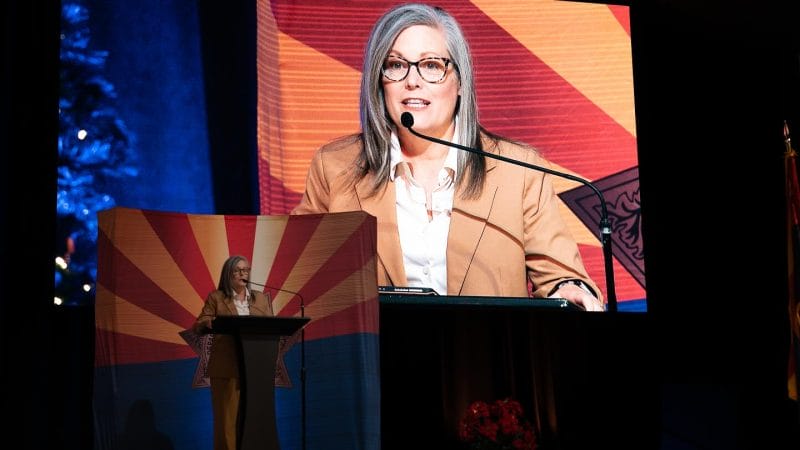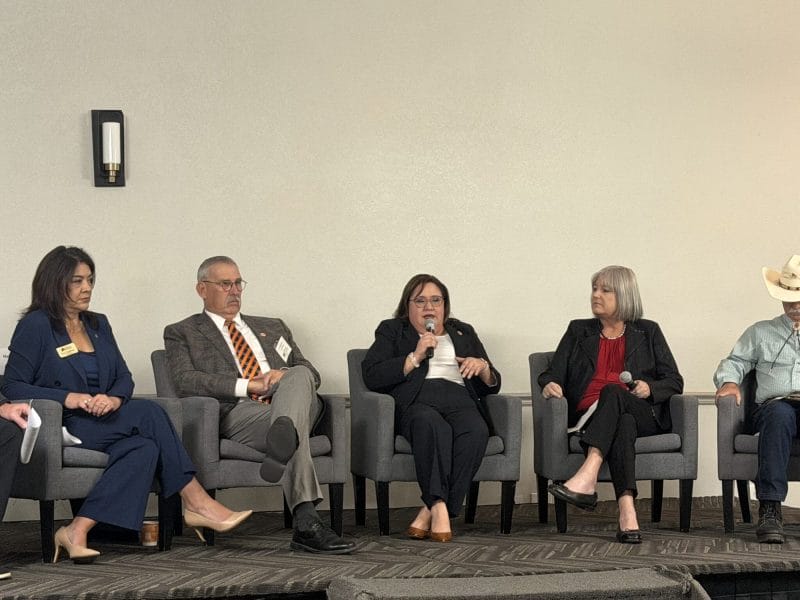 By Phil Riske | Managing Editor/Rose Law Group Reporter.
By Phil Riske | Managing Editor/Rose Law Group Reporter.
Reeling from the blows of the Great Recession, Arizona shed its Department of Commerce in 2010 in favor of a public-private agency known as the Arizona Commerce Authority (ACA).
ACA Director Sandra Watson told the House Commerce Committee last January the state lost 300,000 jobs during the Great Recession, and the goal of the agency is to create 75,000 jobs in five years.
Arizona’ private sector employment fell by 12.5 percent from January 2008 to February 2010, the U.S. Congress Joint Economic Committee reports. Since February 2010, private sector employment has grown in Arizona by 7.1 percent.
Not that all the credit goes to the ACA, but the state has gotten off the mat since it was created.
Employees in the construction, mining and manufacturing sectors faced the largest job losses (as a percent of employment within an industry) over the recession. Since the beginning of 2010, the following sectors in Arizona have experienced the greatest employment increases: mining; education, health services, leisure and hospitality and most recently construction.
The congressional report says as the economy continues its emergence, job gains in the goods-producing sector of the economy will be led by the construction and mining industries while the number of manufacturing jobs is expected to fall.
In its ninth annual survey of CEO opinion about the best and worst states in which to do business, 736 CEOs — the highest response on record — rendered their verdict. Business leaders were asked to grade states with which they are familiar on a variety of competitive metrics that CEOs themselves regard as critical. These include: 1) taxation and regulation; 2) quality of workforce; and 3) living environment. The tax and regulatory grade includes a measure of how CEOs grade a state’s attitude toward business, a key indicator.
CNBC recently ranked Arizona’s workforce higher than any other state in terms of training, quality and availability of workers, while maintaining one of the lowest costs for labor in the nation. But as a right-to-work state, Greater Phoenix’s mean wage, workers compensation and unemployment insurance are all relatively low.
It’s quality of the workforce that’s emphasized by two members of Arizona legislative committee on commerce.
“Support public education at all levels and develop a knowledgeable and skilled work force,” Rep. Debbie McCune Davis (D) told Rose Law Group Reporter when asked what the state can most do to attract new large-scale employers. She is a member of the House Commerce Committee.

Sen. Michele Reagan (R), chair of the Economic Development and Jobs Creation Subcommittee in the Senate and an announced candidate for secretary of state, agrees improving public education is important, but also told Rose Law Group Reporter the degree of government mandates is “overlooked” and should be a selling point to attract new business.
“As you know, in the past three sessions, the Legislature has passed economic competitiveness packages that dealt with lowering the tax liability to attract more large businesses to Arizona,” Reagan said. “What I feel is often overlooked is the fact that Arizona also has fewer government mandates on businesses than our surrounding states.”
Reagan, who sponsored tax incentive law for renewable energy companies also, said employers in Arizona are not overregulated.
“Low taxes, reduced mandates, great weather . . . a good educational system. Now that would be a package that would attract big businesses.”
A recent poll by the Morrison Institute of Public Policy showed 97 percent of Arizona voters believe a top-quality public school system is either crucial or very important to the state’s future. Further, 74 percent of voters believe the Legislature provides public schools with less money than they need.
It’s often said lawmakers must make a more concerted effort to link our education system to future business growth by properly investing in education programs and reforms that will directly lead to a more prosperous economy and better quality of life for all.
The Business Climate
Business leaders say a state’s friendliness is closely aligned with its tax and regulatory regime. Similarly, workforce quality also measures the perceived cooperativeness of workers with management, as well as the people’s general work ethic and education attainment.
For the ninth consecutive year, Texas continues to rank as the most business- friendly state, with California last, according to various surveys.
Florida, North Carolina, Tennessee and Indiana place second through fifth respectively—unchanged from last year’s ranking—while Arizona elbows its way into sixth place, up from 10th place in 2012.
Chief Executive Magazine ranks Arizona a “Top 10 State for Business
Business “ based on business climate: taxes and regulation, quality of workforce and quality of life.
The Chinese
Phoenix Mayor Greg Stanton and Greater Phoenix Economic Council president and CEO Barry Broome are traveling to China next week to attend meetings of the World Economic Forum, Phoenix Business Journal reports
The pair will meet with 14 CEOs from Chinese and multinational companies while they are at the meetings, which feature political and business power brokers from across the globe.
Broome wants to attract more foreign direct investment (FDI) to Arizona from China, noting the People’s Republic could soon be investing as much as $2 trillion overseas as its economy and wealth grows and matures.
“We think China is going to bring the most FDI opportunities to Arizona,” Broome told the Journal.
Solar
Governor Jan Brewer and other state and corporate officials have made several trips to China and India, partly to attract solar energy-related companies to Arizona
Currently the second fastest growing state in the nation according to the U.S. Census, Arizona’s solar industry is booming as well, says azsolarstate.com.
Arizona’s solar industry has seen tremendous growth, attracting world-class businesses throughout the state. In 2010, Arizona was ranked No. 1 on two of Business Facilities annual state rankings top 10 lists – Alternative Energy Industry Leaders and Solar Energy Manufacturing Leader – a testament to Arizona’s prosperous solar companies.
Arizona is now home to the world’s largest solar plant, the U.S. military’s largest solar plant and the world’s premier photovoltaic testing laboratory – as well as more than 100 businesses in the solar energy field. The state has ranked second and third over the past five years in solar energy output and installations.







